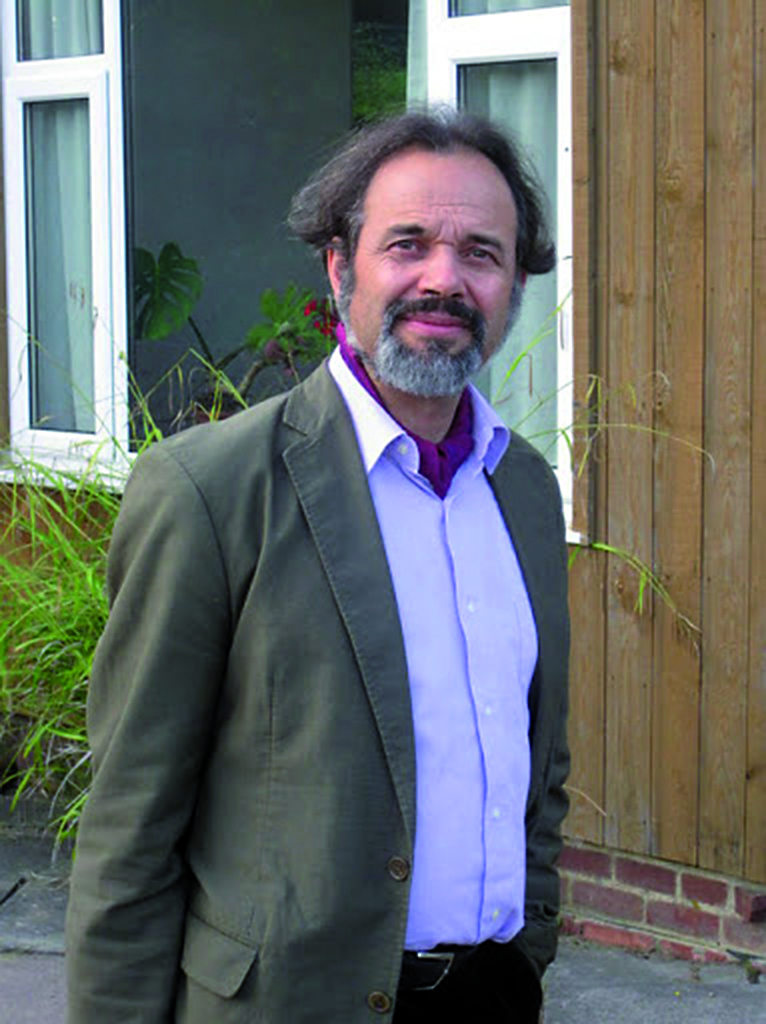The questions are aimed at the following aspects of the path:
What signposts are there for spiritual paths; what can we rely on, what guides us? Which role does (transferable) knowledge play on a spiritual path? Is it possible that not-knowing can play an important role? What changes us?
For me, the spiritual journey of life primarily involved discovering one’s innermost motives already in one’s youth, and then creating a path of practice from this, understanding it anew throughout all the biographical trials and transformations, and accordingly “readjusting the screws” – and finally letting mature what one can do – in order to then focus on what one wants to give form to for the “next round” – in a new life.
The first signpost is a kind of “destiny instinct” that needs to be discovered – what do I actually want, and how do I differentiate this from it: What does only the head want – to which we as modern contemporaries are married… For me, from about the age 16 on, it was the search for the wisdom sources of the Orient: Lao Tze became a deeply esteemed companion for me, and the old Indian culture conveyed to me – namely through the Bhagavad Gita – my “original religion” of spiritual search through many lives. Also with Plato I found the immortality motif (Phaidros – Phaidon) as being deeply familiar to me.
From the wisdom of the Orient to Rudolf Steiner
Through Rudolf Steiner, I then discovered as I grew up that the West has its own spiritual path, inspired by Rosicrucianism, and since Steiner’s method is so precise, his writings became a reliable guide for me – first his “Christianity as mystical fact and the mysteries of antiquity”, then How to gain knowledge of the higher worlds and his Philosophy of Freedom, which I plowed through with full enthusiastic approval in as many days as there are chapters in it. At that time, I had already mastered the entire history of philosophy myself, and could therefore appreciate what step Steiner was taking beyond that.
In this sense, Steiner has become an indicator of steps in consciousness for me, and this gave me confidence to take up his extensive research results, which correspond to this consciousness, with an open awareness of examination and to go on again and again. In particular, as a modern researcher, he has once again uncovered the deep intentions of Christian Rosenkreutz – and thus enabled a free view on the meaning of the original, autonomous self of Christ for the earth.
In this way, “communicable knowledge” could become a signpost on my spiritual journey through life, but Steiner always provided me with methodical handles as to how evidential own knowledge and self-knowledge can be developed from it.
On these traces I soon discovered my “construction sites”, meaning: what prevents a spiritual advancement? – and over the years I have been able to take some steps through self-control in the hygiene of the soul in preparation for and parallel to building a meditative life.
In dealing with young people who have difficulty finding their way into “normal life”, my 28 years of professional practice as a curative educator offered me, almost daily absolute exceptional situations, which demanded the highest presence of mind and helpful intuitions from me – a task that was often exhausting, but then also deeply satisfying, and which led me through many a life initiation in the development of selflessness in compassion.
An organ for inner knowledge
Through this, an organ is formed in you for what is needed – an inner knowledge, a voice of the heart, which you learn to follow better and better, in falling and getting up. From this a knowledge of fate emerges, which in some moments opens doors into former lives, which I have learned to integrate into my present tasks, or rather, with which I am in the “ongoing process”. Thus I increasingly experience myself as being active in a process of development that always offers new surprises – a biography as an organ of an individuality, always on the way to the great archetype of an integrative ME that walks with us in Christ.
To become aware of His participation, a “self-conscious not-knowing” is a basic condition – as Nikolaus von Kues first formulated it in the dawn of modern times. To create this state in the fully conscious switching off of the usual consciousness of thought, in order to lead to perception, may be regarded as the high art also in the sense of the intentions of the Rosicrucian.
Thus my guiding stars are named as concrete spiritual and sometimes also earthly beings. They constantly stimulate my transformation towards a servant of humanity.
Thank you for your questions – they gave me the opportunity to briefly characterize this path of now 70 years in retrospect.
G. Alfred Kon

Born in Arnhem (Netherlands) in 1950, studied philosophy and theology in Amsterdam and Stuttgart and curative education in Eckwälden.
For 28 years he took on responsibility for children and young people in need of spiritual care at „Haus Sonne“ in Walsheim, Saarland, as group father, senior school teacher and trainer of curative teachers. From 2003-2015 he ran the “Praxis Gaspard” in Saarbrücken as a freelancer for life counselling and adult education, with artistic therapy and courses, and further training in diagnostics.
In addition, he is active at home and abroad as a guest lecturer, lecturer and author in art and cultural history, anthroposophy and (curative) education.
Since 2016 he lives in Lebrade, Schleswig-Holstein and runs the art workshop “Brighid”.


